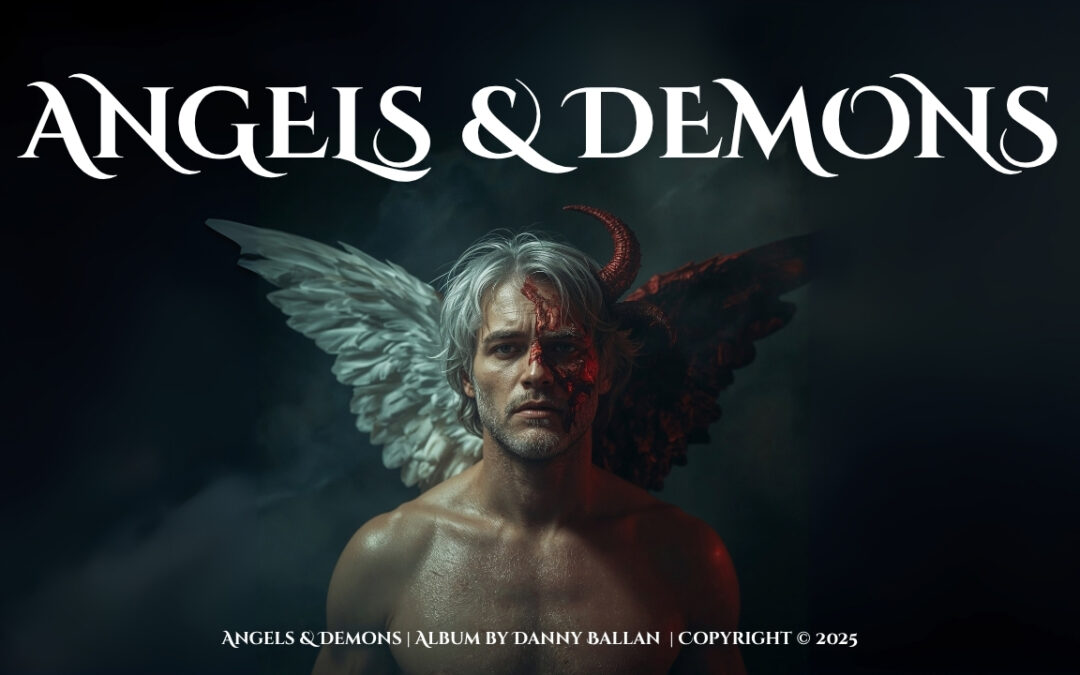Every story needs a voice, and that voice belongs to the narrator. The narrator is the lens through which readers experience the events, emotions, and revelations of a story. Choosing the right narrator can make the difference between a story that resonates and one that falls flat. But what exactly is the role of the narrator, and how can writers decide who should tell their story? Let’s explore this essential aspect of creative writing.
What Is a Narrator?
At its core, the narrator is the storyteller—the character or voice that guides readers through the narrative. The narrator’s perspective, personality, and reliability determine how the story unfolds and how readers connect with it. Narrators can be characters within the story or external observers, each bringing unique qualities and challenges to the storytelling process.
Types of Narrators
1. First-Person Narrator
This narrator speaks directly to the reader, using “I” and “we.” They are often a character within the story, providing a personal, intimate perspective.
- Strengths: Offers deep emotional connection and insight into the narrator’s thoughts and feelings.
- Challenges: Limited to the narrator’s experiences and knowledge, which can restrict the scope of the story.
- Example: Scout Finch in To Kill a Mockingbird by Harper Lee, whose innocence shapes how readers perceive the events of the story.
2. Second-Person Narrator
Rarely used, this narrator addresses the reader directly as “you,” pulling them into the story as a participant.
- Strengths: Creates an immersive and unique experience for the reader.
- Challenges: Can feel unnatural or jarring if not handled carefully.
- Example: Jay McInerney’s Bright Lights, Big City, which uses second-person narration to convey disorientation and immediacy.
3. Third-Person Limited Narrator
This narrator focuses on the experiences of a single character, using “he,” “she,” or “they.” While not part of the story, they provide access to the inner thoughts of one character.
- Strengths: Balances personal connection with broader narrative scope.
- Challenges: Limited to the chosen character’s perspective, which can constrain the narrative.
- Example: Katniss Everdeen in The Hunger Games by Suzanne Collins, where readers see the world through Katniss’s eyes.
4. Third-Person Omniscient Narrator
This narrator knows everything about every character and event in the story, offering a godlike perspective.
- Strengths: Provides a comprehensive view of the story and its characters.
- Challenges: Risks overwhelming the reader with too much information or losing emotional intimacy.
- Example: The narrator in Leo Tolstoy’s War and Peace, who explores multiple characters’ thoughts and experiences.
5. Unreliable Narrator
This type of narrator is intentionally deceptive or biased, leading readers to question the truth of the story.
- Strengths: Adds complexity and intrigue, encouraging readers to piece together the truth.
- Challenges: Can confuse readers if the unreliable elements aren’t clear.
- Example: Patrick Bateman in Bret Easton Ellis’s American Psycho, whose distorted worldview makes the narrative unsettling and ambiguous.
The Narrator’s Role in Shaping the Story
1. Establishing Tone and Mood
The narrator’s voice sets the tone and mood of the story. A cheerful, chatty narrator creates a lighthearted atmosphere, while a somber, reflective one builds a sense of gravity or melancholy. Consider how Lemony Snicket’s dry, witty narration shapes the dark humor of A Series of Unfortunate Events.
2. Building Reader Connection
A well-chosen narrator fosters empathy and connection. First-person narrators invite readers into their inner world, while third-person narrators allow for a broader understanding of multiple characters.
3. Controlling Information Flow
The narrator determines what readers know and when they know it. An omniscient narrator can reveal backstories and secrets, while a limited narrator creates suspense by withholding information.
4. Shaping Perspective
The narrator’s viewpoint influences how readers perceive events and characters. An unreliable narrator, for example, forces readers to question what they’re told and draw their own conclusions.
Tips for Choosing the Right Narrator
1. Consider Your Story’s Goals
Ask yourself what you want readers to feel and understand. A deeply personal story might benefit from a first-person narrator, while an epic tale might need the scope of an omniscient perspective.
2. Think About Reliability
Do you want readers to trust the narrator completely, or do you want them to question everything? The choice of a reliable versus unreliable narrator can drastically change the story’s impact.
3. Match the Voice to the Story’s Style
The narrator’s voice should complement the story’s tone. A sarcastic, witty narrator might work for a satirical piece but feel out of place in a serious drama.
4. Experiment with Multiple Narrators
Using multiple narrators can provide varied perspectives and enrich the narrative. Just be sure to distinguish each voice clearly to avoid confusing readers.
Common Pitfalls to Avoid
1. Inconsistent Voice
A narrator whose voice or perspective shifts unintentionally can confuse readers. Ensure your narrator stays true to their established tone and knowledge.
2. Overloading with Information
Omniscient narrators must be careful not to overwhelm readers with unnecessary details. Focus on what drives the story forward.
3. Neglecting the Narrator’s Role
Treat your narrator as a character, even if they’re not part of the story. Their personality, biases, and perspective are integral to the narrative.
The role of the narrator is one of the most critical decisions a writer can make. Whether they’re a reliable guide, an omniscient observer, or an unreliable wildcard, the narrator shapes how readers experience the story. By understanding the strengths and challenges of different types of narrators, you can choose the voice that brings your story to life. So, who’s telling your story, and what do they have to say?
Let’s Talk
When you think about your favorite stories, do you ever stop to consider why they resonate with you? Chances are, it has a lot to do with the narrator. The narrator isn’t just a tool to tell the story—it’s the personality behind the words, the voice that shapes how you perceive every twist, every character, and every emotional beat. But here’s the thing: how often do we, as writers, give enough thought to who is telling our story?
One thing that fascinates me is the idea of the unreliable narrator. Think about it—how much more intriguing is a story when you’re not entirely sure if you can trust the person telling it? It makes you work as a reader, piecing together the truth from clues the narrator might not even realize they’re giving. But at the same time, it’s tricky to pull off as a writer. You don’t want your audience to feel cheated or lost. It’s a fine balance. Have you ever tried to write an unreliable narrator? If so, how did you handle the challenge of making them believable yet deceptive?
Another interesting aspect is how narrators can limit or expand the scope of your story. A first-person narrator feels personal and immediate, but it can also box you in—you’re stuck with only what that character knows or experiences. On the other hand, an omniscient narrator gives you the freedom to explore everything and everyone, but it can feel distant if you’re not careful. It’s like the difference between sitting in the passenger seat versus flying above the road in a helicopter. Both have their advantages, but the choice depends on the journey you want to take your readers on. What’s your default as a writer? Do you stick with one perspective, or do you experiment depending on the story?
Let’s also talk about voice. A narrator’s voice is the glue that holds the story together. It’s not just about what’s being said but how it’s being said. Think about Lemony Snicket’s dry humor or the poetic introspection in The Great Gatsby. These voices become as memorable as the characters themselves. But finding the right voice can be tough. It’s like trying on different outfits—sometimes, the first one fits perfectly; other times, you’re changing costumes a dozen times before you find the one that works. Have you ever scrapped an entire draft because the narrator didn’t feel right?
And here’s something we didn’t touch on earlier: narrators aren’t just for fiction. Memoirs, personal essays, even journalism—they all rely on a narrator, whether that’s the writer or someone they’re channeling. In nonfiction, the narrator is key to building trust and authority. How often do you think about your voice when you write something more personal or informative?
So here’s the big question: who’s telling your story? Not just the one you’re writing, but your own life story. Are you the first-person narrator, fully immersed in every detail? Or are you more like an omniscient observer, reflecting from a broader perspective? And if you were to rewrite your own story, what kind of narrator would you choose?
Let’s Learn Vocabulary in Context
Let’s start with “narrator.” This is the voice or character telling the story. It can be as simple as saying, “The narrator in this book made me feel like I was right there with the characters.”
Next, we have “perspective,” which is the narrator’s point of view. You might use it like this: “Changing the perspective of my story from first-person to third-person made it feel more expansive.”
“Reliability” is a key term, especially when discussing narrators. It refers to how much readers can trust the narrator. For instance: “The narrator’s reliability came into question when their version of events didn’t match the other characters’.”
The word “intimacy” often describes the connection between the narrator and the reader. In real life, you might say, “First-person narration creates a sense of intimacy that third-person often lacks.”
“Scope” refers to the range of what a narrator can cover in the story. You might hear, “The third-person omniscient narrator gave the story a wide scope, exploring every character’s thoughts.”
Let’s look at “bias.” This is when a narrator’s personal opinions influence the way they tell the story. For example, “The narrator’s bias became clear when they described one character as a hero and another as a villain without evidence.”
The term “tone” refers to the narrator’s attitude or mood. You could say, “The sarcastic tone of the narrator made the story funnier than I expected.”
“Voice” is the unique personality of the narrator. In conversation, you might hear, “The narrator’s voice was so distinct that I could hear it in my head as I read.”
“Engagement” relates to how the narrator keeps the reader interested. For instance: “A conversational narrator can increase reader engagement by making the story feel interactive.”
Finally, we have “omniscient,” which means all-knowing. For example, “The omniscient narrator knew everything about the characters, even their hidden thoughts and pasts.”
Now, think about your own writing. Which of these terms resonates the most with your process? Have you ever struggled with tone or voice, or tried to create a narrator with a distinct bias? And how do you balance engagement with the scope of your story?
Let’s Discuss & Write
Discussion Questions:
- How does the choice of narrator affect the emotional connection readers feel with a story?
- What challenges have you faced when writing from a perspective that isn’t your own?
- How do you decide whether your narrator should be reliable or unreliable?
- Can a narrator’s tone or voice make or break a story? Why or why not?
- How can experimenting with different types of narrators improve your writing skills?
Writing Prompt:
Write a short story titled “Through Their Eyes” where you explore a single event from two different narrators’ perspectives. Focus on how their biases, tone, or knowledge shape the story differently. Aim for 300–400 words for each perspective and try to make each narrator’s voice distinct and engaging.










0 Comments